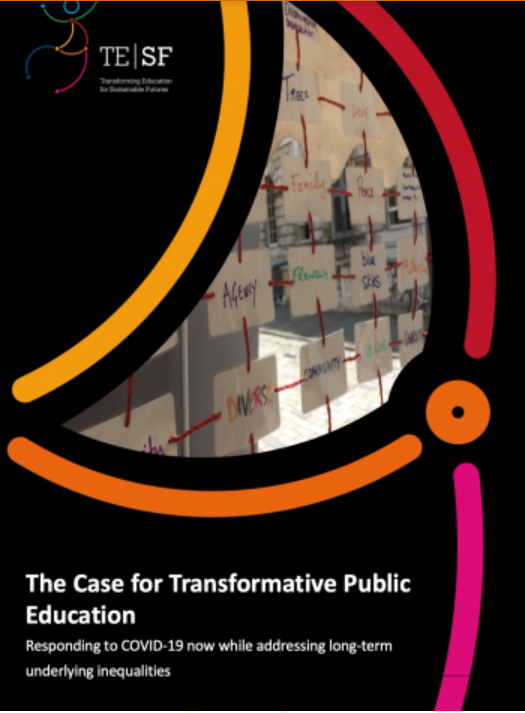
a rising sensation that liberates you from ‘sinking’ into negativity” – using artistic forms of evaluation of learning, helped both subjectification and creating a sense of community in the course
This paper recently appeared in International Journal of Sustainability in Higher Education. It explores students’ sense of community and belonging in an online course on environmental and sustainable education during times of physical distancing as a result of the COVID-19 pandemic. Using a case study approach, the results show that students perceived a sense of community that was collectively build during the four week program. Sense of community was linked to and facilitated by the learning environment and the educators’ and students’ role throughout the course. Prominent factors here are interaction and inclusion created with mutual effort by design, the educator and student.
This research arose after the course ELS-31806 Environmental Education and Learning for Sustainability[1] was converted as an ‘offline’ course into an online course due to COVID-19. The original content of the course enables students to systematically discuss important concerns in the development of an effective curriculum and/or operation for the environment and sustainable development using a range of instrumental and emancipatory approaches. But foremost ELS-31806 is a course that has always been, well appreciated and highly valued by participants for its highly experiential and hands-on approach.
However, due to COVID-19 this year’s course (2020) was changed into a less experiential on-line format mediated by Zoom for interaction and by Brightspace for course structure and organisation. This somewhat ad-hoc and sudden departure from the traditional successful format, lowered the instructors, and probably also, the students’ expectations about the course’ ability to create a vibrant learning community. Yet, contrary to pre-course expectations, ‘something’ (i.e. a sense) arose over the course of four weeks online education that both students and staff considered to be special or meaningful. These hunches got confirmed several weeks after by Wageningen UR’s student evaluation system PACE which revealed that the students highly valued the course.
We were intrigued by the question of how this online edition evoked similar, or nearly similar outcomes to its offline counterpart. After first checking whether our hunches were right about the course and what might explain the high evaluation marks, we centre in the paper’s main question:
What are key characteristics of an online course that fosters subjectification (personal development and inner-sustainability in relation to others and the other) and creates a sense of community?
The paper was led by former MsC student Robbert Hesen and co-authored by myself and ELS Postdoc Rebekah Tauritz.
Citation
Hesen, R., Wals, A.E.J. and Tauritz, R.L. (2022), “Creating a sense of community and space for subjectification in an online course on sustainability education during times of physical distancing”, International Journal of Sustainability in Higher Education, Vol. 23 No. 8, pp. 85-104. https://doi.org/10.1108/IJSHE-07-2021-0270
Triggered by these results we decided to investigate what might explain these results.
[1] A course within the Education and Learning Sciences (ELS) chair group at Wageningen University & Research (UR): https://ssc.wur.nl/Handbook/Course/ELS-31806

